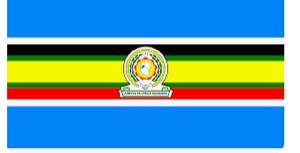The direct costs of non-tariff barriers (NTBs) in the East African Community (EAC) is estimated at $16,703,970, with the total trade impact being $94,918,000, a new report shows.
The EAC Regional Meeting Committee report (2023) shows that trade has decreased by an average of 58 per cent.
Tanzania and Uganda have been cited as having the highest number of unresolved NTBs, with Tanzania having four unresolved issues, Uganda, three, and Kenya and South Sudan having one each as of February 2024.
NTBs, which are obstacles to international trade that are not import or export duties, have taken the form of import quotas, subsidies, customs delays, and technical barriers impeding trade, have been a hindrance to intra-EAC trade.
The EAC Sectoral Council of Trade, Industry, Finance and Investment meeting in Arusha on February 9 chaired by William Anyuon Kuol, Minister for Trade and Industry of South Sudan and chairperson of the Council, resolved to have the NTBs resolved by June, pushing the partner states to hold bilateral meetings to resolve them.
Addressing the Council on the matter, EAC Secretary-General Peter Mathuki said that while in the financial year 2021/2022, intra-trade reached $8.7 billion, followed by an increase to $9.4 billion in 2022/23, NTBs continued to pose a threat to trade in the region.
“This demonstrated a robust trading environment among EAC Partner States, with a notable growth of approximately 7.98 per cent,” Dr Mathuki said.
“However, there is a need for ministers to address issues relating to denial of preferential market access for EAC-originating goods, non-ratification of key EAC instruments, finalisation of EAC Tariff Offers, cross-border challenges affecting movement of goods and persons and resolution of existing NTBs.”
Tanzania has more NTBs than Kenya and has denied preferential treatment for motorcycle accessories exported by Kenya. The Council directed that this be resolved by December 2023 but it remains outstanding.
Tanzania is also charging excise duty on confectionery, which should be zero-rated under the EAC Common External Tariff.
The confectionery is subjected to Tsh1,000 ($0.39) / kg excise duty while the same excise duty is not applicable to the same or like products produced in Tanzania, hence creating unfair competition between the partner state-originating products.
Kenyan cigarettes and animal products are also barred from Tanzanian markets.
“Despite tobacco raw material being fully sourced in Kenya, the manufacturers are required to pay 80 per cent higher excise for cigarettes exports into Tanzania,” says a report on NTBs.
“Cigarettes manufactured in Kenya exported to Tanzania required to have a local 75 per cent tobacco.”
The Council proposed February 15 as a timeline resolution but Tanzania indicated that the NTB has since been resolved.
Kenya has also barred hatching eggs imported from Tanzania by imposing an excise duty of 25 per cent.
On its part, Uganda has barred Kenyan juice and tissue paper. This is on top of the current dispute over oil imports through the port of Mombasa where Uganda has taken Kenya to the East African Court of Justice for denying it permission to use its port facilities to import the commodity.
Uganda has imposed a 13 per cent excise duty on Kenyan juices on the grounds that the sugar used is imported from outside the East African region – Finland.
Uganda also rejected tissue paper manufactured in Kenya by Africa Cotton Industries, arguing that it does not allow group packaging of tissue paper as provided for under the EAC harmonised standard.
“The Council directed that the matters be handled and resolved by June 31, 2024, through bilateral meetings between the two countries,” said Minister Kuol.
Uganda does not recognise the calibration certificate issued by the Weight and Measures Agent (WMA) for oil tanks from Tanzania, thereby limiting the movement of trucks between the two states.
Harmonise procedures
The EAC Secretariat convened a meeting in February 2023 to harmonise calibration procedures for road tankers. After a peer-to-peer assessment, Tanzania requested Uganda to waive the requirement for recalibration while EAC procedures are awaited.
South Sudan on its part, has been imposing costly charges for security for foreign vehicles.
The ever-emerging NTBs have prompted the region to come up with a mobile app to ease the reporting, monitoring and elimination of NTBs in the Community.
Benedict Musengele, director of Trade and Customs at Trade Mark Africa, said the EAC NTBs App, similar to one used in Comesa, blends SMS, e-mail, and phone reporting, offering a “one-stop solution.”
By streamlining the NTB reporting process, the app will aid traders and producers in tackling obstacles that impede their trade efficiency and competitiveness.
“Additionally, it ensures transparency and quick resolution of issues by engaging technical and policy-level mechanisms, such as National Focal Points, the National Monitoring Committees and the Regional Monitoring Committee,” Mr Musengele said.
Africa Business News of Sunday, 18 February 2024
Source: theeastafrican.co.ke
NTBs cost region $16m, threatening intra-EAC trade
 The EAC Regional Meeting Committee report (2023) shows that trade has decreased by an average of 58%
The EAC Regional Meeting Committee report (2023) shows that trade has decreased by an average of 58%
Entertainment











